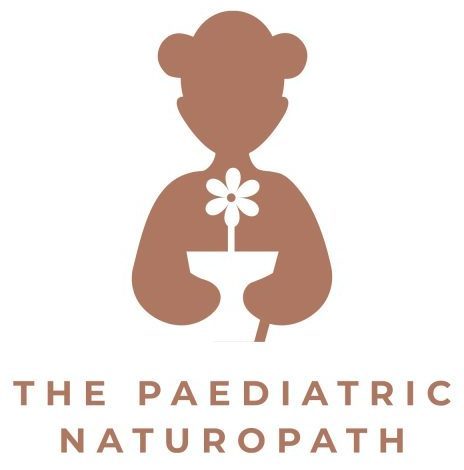Sleep issues are one of the frequent issues I see in clinic.
Having a child who can’t sleep steals parents of their ‘grown-up time’ in the evening, and leads to cranky children in the morning.
Parents will frequently spend thousands of dollars on sleep trainers. This will certainly help with some behavioural issues. But if the issue is biochemical, all the sleep training in the world won’t help, and will just lead to a lot of stress for parents and child.
The next thing that people might do is a sleep study. This is where you go to a centre for a night, and your child is wired up to a machine to monitor their body as they sleep. This can diagnose issues such a sleep apnoea or periodic leg movement disorder.
Having this information can be interesting, and you get a firm diagnosis, but it does little to solve the problem.
Getting to the root cause of the sleep issues will help the child’s sleep, but will probably also help in other areas of their life to, as poor sleep is just another symptom.
What does sleep do to your body?
Sleep is very important for adults and children alike.
When we sleep our body has a chance to restore and heal itself, on a physical and emotional level.
Bodily processes like metabolism and detoxification are regulated by sleep.
Our immune system is bolstered by sleep.
Growth occurs during sleep.
Learning and memory are consolidated by sleep.
When should babies sleep longer at night?
With newborns, sleep can be erratic, but by 4-6 months a regular sleep-wake cycle should have emerged. In an ideal world, 6-8 month old babies should be sleep close to 12 hours at night, without a break.
If this isn’t happening then there are a few areas to trouble shoot.
Why won’t my baby sleep through the night?
- Nutritional deficiencies. Especially if baby was a premmie, they could be deficient in some nutrients which are affecting sleep, such as zinc or magnesium
- They could have food sensitivities which are irritating them, either through the foods they eat, or what the mum eats if breastfed.
- They might have too much sugar in their diet (even through fruit)
- Exposure to cigarette smoke can have a big impact on sleep
- Babies thrive on routine, and if there isn’t a routine, this could disrupt their sleep
- Some babies will still be suffering from colic at this age. There are probiotics which are scientifically proven to help with colic.
- Poor gut health – not enough good bacteria can effect sleep. Perhaps due to taking antibiotics, or reflux medication.
- After-effects of birth trauma can lead to residual sleep issues.
Sometimes the easiest thing to do at this point is give them a dummy, but this can be counterproductive.
Dummies can lead to poor growth of the tongue and palate, which causes mouth breathing, snoring, sleep apnoea and tonsillitis. The sucking action of breastfeeding however produces a better shaped palate.
Will my child ever sleep?
Once children are at primary school you would hope that sleeping would be a ‘dream’ however this is definitely not the case!
Lots of sleep disorders can present at this age.
I talk about some of the more common ones below, and how natural therapies can help with them.
Bed wetting.
This is a common issue with children. It can be related to stress, anxiety, constipation, sleep apnoea or enlarged tonsils. Sitting on an adult toilet means that children can’t completely relax their pelvic floor muscles, which can lead to constipation and urinary tract infections, which lead to bedwetting.
It is also caused by neurotransmitter imbalance (see below).
Bruxism (teeth grinding).
If you child wakes with a headache or sore jaw, they may be grinding their teeth. Your dentist will also be able to tell you if it is happening, as it damages their teeth.
And if you co-sleep, you will be able to hear it too.
Things to consider for teeth grinding are intestinal parasites, nutritional deficiencies, anxiety, neurotransmitter imbalance (see below) and allergies.
Nightmares.
These will happen in 10-50% of children.
They usually happen in the second half of the night. The child will remember it, and be too scared to go back to sleep.
Addressing stress and anxiety and giving some supplements can help.
Night terrors.
These are different to nightmares. They usually happen early in the night. The child will be crying or screaming, and be inconsolable. It is awful to watch, but the child will not remember it.
Supplements to calm the nervous system can help, as will some gentle liver detoxification.
Obstructive sleep apnoea.
There may be some obvious signs this is happening, such as sleeping in an unusual position, and sweating a lot during the night.
The child will be unsettled and wake up a lot.
They may wet the bed, have nightmares or night terrors and chronic runny noses or ear infections.
During the day they will be inattentive and drowsy at school. This can lead to hyperactivity, irritability and aggressiveness.
Some children who snore will have sleep apnoea, but not all of them.
If your child snores, you should consider that their airway is being narrowed.
The reasons why the airway might be narrowed include enlarged tonsils, allergies and obesity.
Sleep apnoea can also lead to obesity as the child tries to get energy from food that they should be getting from sleep.
Restless legs or periodic limb movement disorder in sleep.
Children with ADHD are more likely to suffer from this.
It can also be due to an iron deficiency, which you need to have a blood test for. Supplementing with iron is not a good idea unless you know how much the child has to start off with.
Exercising during the day can help some people, as can a foot massage or meditation before bed.
Nutrients such as magnesium and a low sugar diet will help.
Difficulty getting to sleep (initiating sleep).
This is the problem I see most, at home, and with clients.
There are lots of sleep hygiene practices which you can do first to help with this. These include:
- Taking all electrical equipment out of the bedroom, and checking what is on the other side of the wall also.
- Having a good bedtime routine, at a set time
- Getting up at the same time every day
Once these basics are in place, it is time to think about ways to establish a proper circadian rhythm, and look at neurotransmitter balance
Neurotransmitters and circadian rhythm
Circadian rhythm is your body’s internal body clock, which tells you when it is time to go to bed at night, and get up in the morning.
Melatonin is a hormone which is important for your circadian rhythm and is made from the neurotransmitter serotonin.
So you need to have enough serotonin, and a good supply of the vitamins and minerals to convert serotonin to melatonin. Taking a melatonin supplement just takes a steam roller over the body’s natural biochemical process, and jumps right to the last step. It is better to get all the neurotransmitters and vitamins correct, so your body can make its own melatonin.
Too much light will disrupt circadian rhythm and sleep. Ipads, TV, night lights can all cause problems for kids sleep. Dimming the lights in the evening and turning off devices will help with sleep initiation.
Other neurotransmitters can also be out of balance, and have an effect on sleep
What does gut health have to do with sleep?
There are several ways that gut health can effect sleep.
There is two way communication between the gut and the brain. That is why gut health is linked to anxiety, ADHD and autism. These three conditions can impact sleep. So improving gut health will improve sleep in people with these conditions.
For people without anxiety, ADHD or autism, the gut brain connection will still be important. Having healthy bacteria in your gut will mean a better night’s sleep.
Having an irritated gut lining will cause abdominal pain, which will impact sleep quality.
Gut microbes also help us to make serotonin, which is needed to make melatonin.
Poor gut health makes it more likely that candida infection can take over. Candida effects the kidneys, which disrupts sleep. It produces acetaldehyde which can cause sleep disturbances. It causes inflammation which can cause sleep apnoea.
How can a nutritionist help with sleep?
Food intolerances and allergies have a big impact on sleep. They can cause enlarged tonsils and therefore sleep apnoea. They also cause general irritation and inflammation, making falling asleep harder. Bed wetting is also made worse by food intolerances, which leads to a disrupted sleep. Food intolerances can be tested by a Nutritionist
There is a urine test (Organic Acids Test) which shows levels of neurotransmitters your child is producing and some nutritional deficiencies. If these neurotransmitters are out of balance, sleep will be affected.
For instance, low levels of serotonin will lead to insomnia.
Eating foods high in tryptophan such as turkey and bananas will bolster serotonin, as will taking a supplement.
This urine test helps pin-point exactly what neurotransmitter is out of balance, so you can target it specifically.
Heavy metal toxicity testing is done through hair analysis.
Heavy metal toxicity will lead to poor sleep quality, and can be addressed though food and supplementation.
You can also test for hormones directly such as melatonin, but these are influenced by neurotransmitters, so you are best to start there.
If your child’s sleep problems are stealing your evenings, get in touch with me for a free 20 min chat to discuss if I might be able to help!




